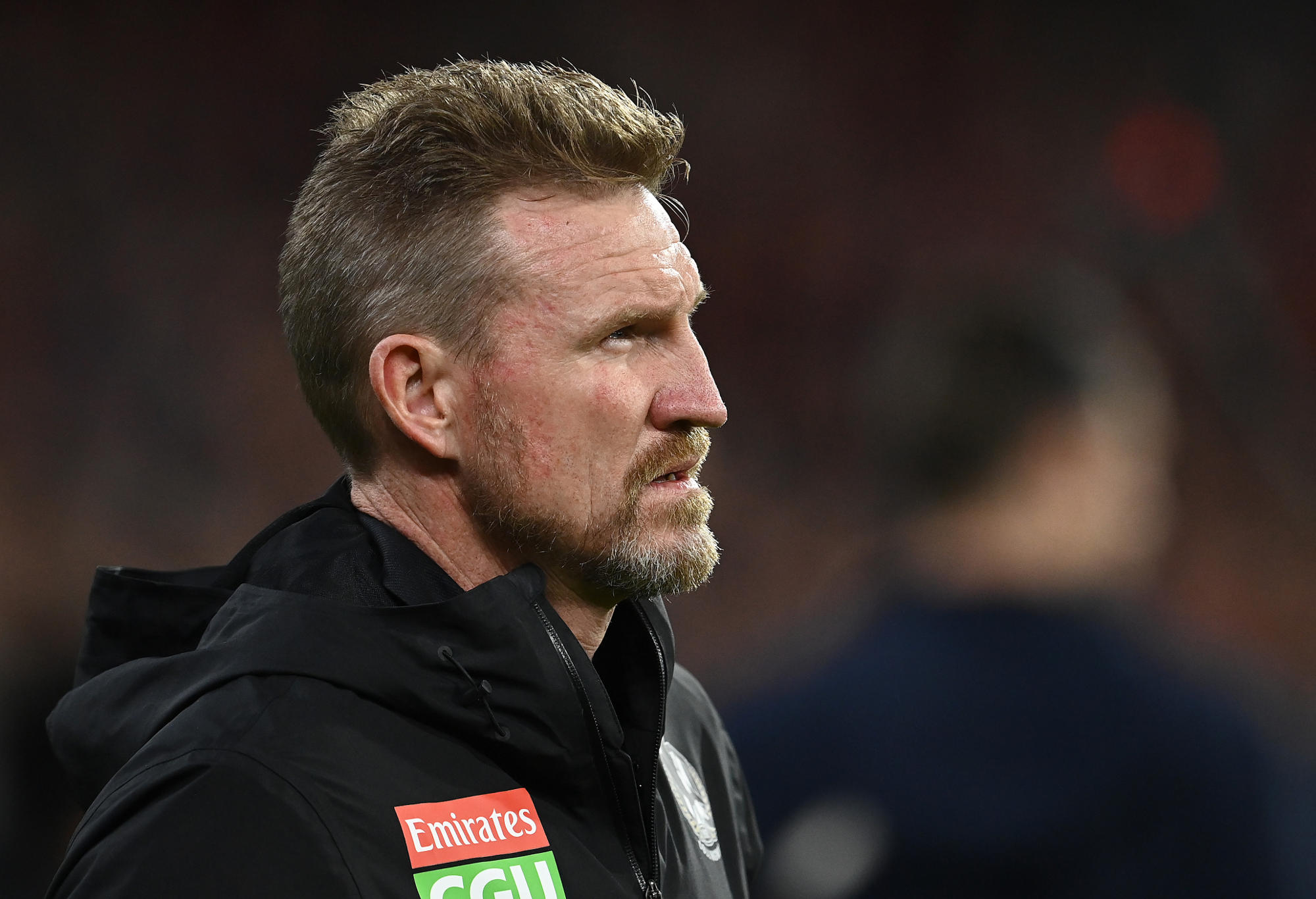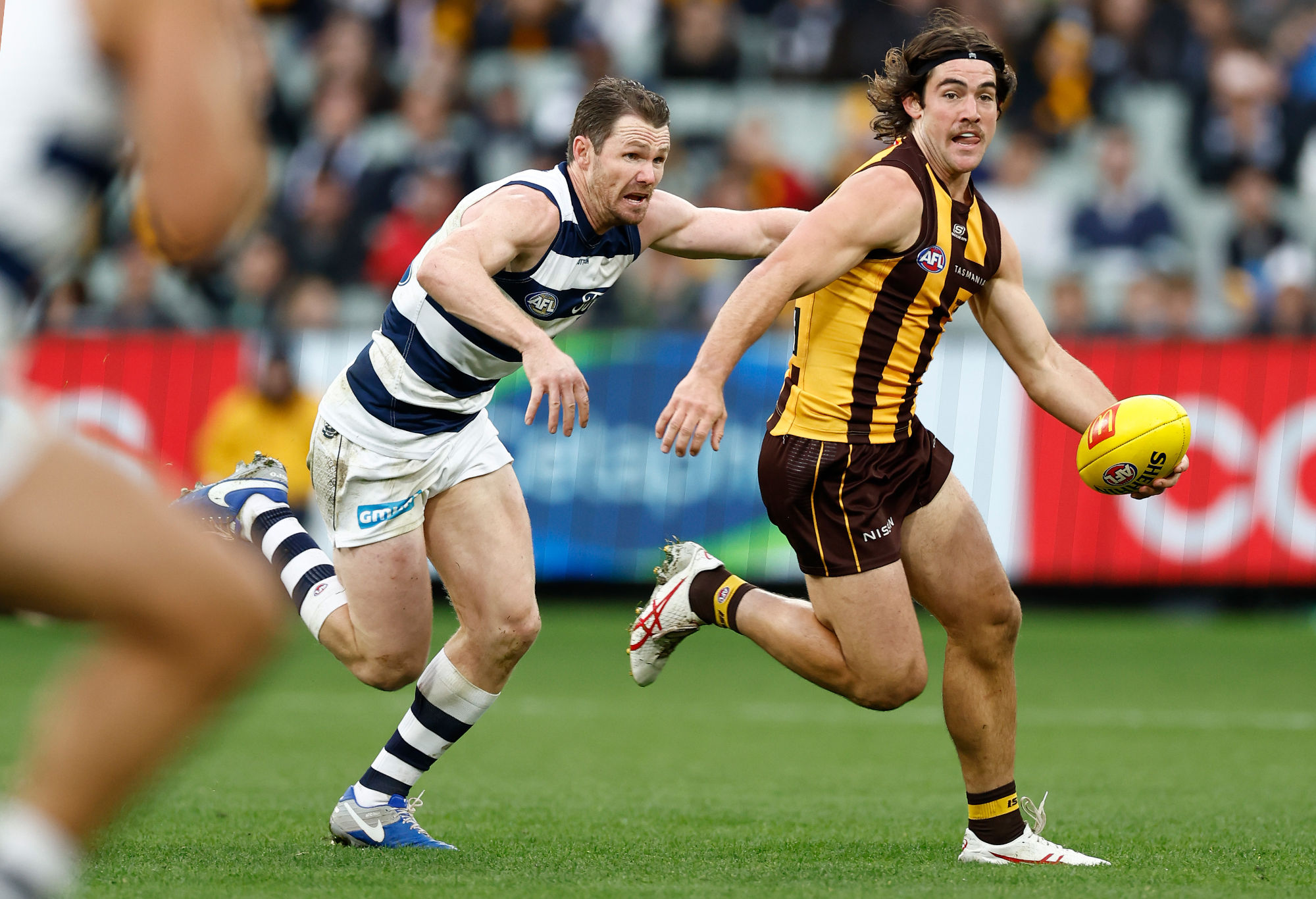AFL News: North OF Melbourne? McGuire's bold idea to rejuvenate Roos, Scott slams sub rule after Anzac Day drama
Eddie McGuire's latest bold idea has dropped - for North Melbourne to take over the outskirts of Melbourne and use it to rejuvenate the…
Opinion
“Well… not quite your storybook ending, huh. Not for us anyway. But you men played like champions… you never gave up. And champions hold their heads high. What you achieved goes way beyond the win-loss column or what’s gonna be written on the front page of the sports section tomorrow.”
That’s a quote from Coach Carter. The 2005 drama starring Samuel L. Jackson tells the real-life story of Ken Carter who in 1999 benched the high school basketball team he was coaching due to poor academic performance.
Why is this relevant you ask? Well, the reason I bring this up is it leads to today’s topic. You see, Carter was the coach of the Richmond Oilers basketball team based in Richmond, California, a team he played for 30 years earlier. A past player, a favourite son if you like, coming back to take on the challenge of mentoring a team containing talented but disrespectful players with little to no future prospects should they fail to succeed on the court.
There is something unusual about sport in that it does not naturally conjure up feelings of romance, yet there is something romantic about a favourite son coming back to the club that made them legendary with the hope of taking them to the ultimate glory.
AFL is certainly no different. But does it actually happen that often? Or as fans are we more in love with the dream than the often-harsh realities of coaching in a cutthroat industry?
There is a danger in assuming that being a great or iconic player naturally makes a person suited to be a coach, much less actually succeeding. Sure, in recent years we have seen premiership teams led by coaches who had great success as players (think Damien Hardwick, Simon Goodwin and Chris Scott). But we have also seen coaches succeed despite having far less prominent playing careers (such as Alistair Clarkson and Luke Beveridge).
This is because being a successful coach involves more than just technical nous or being able to draw on your experiences winning premierships, Norm Smith Medals or Best and Fairest. It involves having strong emotional intelligence in order to build relationships and trust with your players to be able to foster a strong internal and external culture.
Now if you think that is tough, spare a thought for anyone who ends up coaching at the club they played for. For them, the pressure to succeed can often be greater, and the spotlight much harsher.
As fans, we watched their AFL journey, from skinny draftee, through to budding star, maybe even the captain and them holding the Cup aloft in the centre of the MCG on that last Saturday in September. So, it goes without saying that we often expect the same journey to occur when they take on the head coach role.

(Photo by Quinn Rooney/Getty Images)
I remember watching that journey unfold for Nathan Buckley, a man I admired as a player. He was my hero growing up as an avid Collingwood fan. Almost immortal, I felt real sadness when he announced his retirement at the end of 2007, without the premiership he ultimately desired. To see him agree to be a head coach as part of the now infamous handover agreement between him and Mick Malthouse, you sensed he had unfinished business, that he was going to get that flag he so truly desired above all else.
It started off well, with the club making it to a Preliminary Final before falling twenty-six points short at the hands of Sydney. From there, things started to run adrift, with the club slipping further down the ladder to miss out on finals for five seasons. 2018 brought renewed hope, with the Magpies taking the competition by storm and roaring up the ladder to finish the season third, only for it all to go to hell in the form of a four-point Grand Final defeat to the West Coast Eagles.
2019 saw another Preliminary Final defeat, this time to the GWS Giants before the pandemic by and large took footy as we knew it away from us, as our beloved teams become almost travelling sideshows. Moving cross-country to keep the league running, with the odd spectacle of neutral matches being played in almost empty stadiums.
2021 saw the club sitting second-last above only North Melbourne. By the mid-way point, it became clear the Buckley journey was reaching its inevitable terminus. Much like his playing career, he had come agonisingly close to tasting ultimate success, only to fall short at the final hurdle. Buckley’s last game as coach of his (and my) beloved Magpies came on 14th June 2021, Queen’s Birthday against Melbourne at the SCG. Amazingly, the boys rallied and secured a seventeen-point victory against a team who would later decimate the Western Bulldogs in the big dance.
Despite leading the team to a Grand Final as well as an additional two Preliminary Finals, Buckley’s time as coach ultimately saw him fail at what we often consider the key indicator of success, getting that elusive premiership.

(Photo by Michael Willson/AFL Photos via Getty Images)
Looking back, it feels like history was not on Buckley’s side. AFL history is littered with favourite sons and club legends who came in with great promise, only to end up failing spectacularly. So bad, at times they destroy their legacy, be it Buckley, James Hird, Michael Voss, Brett Ratten or Tony Shaw. Favourite sons actually succeeding as coaches are few and far between. There’s obviously Jock McHale, Norm Smith and John Kennedy Sr in the VFL and to a lesser extent John Worsfold at West Coast. Outside of the VFL/AFL, there’s Fos Williams in the SANFL and you could argue Haydn Bunton Jr in the WAFL. But that is just about it really. Pretty much every other great player who succeeded as coach did so in a completely different team.
All of which brings us to the current day, and specifically to Hawthorn, where club great Sam Mitchell is very much occupying the hot seat. He’s certainly reached many highs as a player – four premierships, three All-Australians, 2003 Rising Star, 2012 Brownlow Medal (yes, that Brownlow medal) and five Peter Crimmins Medals (that’s Hawthorn’s Best & Fairest) amongst others. But today, he is finding himself in unfamiliar territory, with the Hawks sitting last on the ladder and today copping a sixty-nine-point defeat at the hands of a struggling Fremantle outfit.
Debate is raging about whether he is the right man to lead the Hawks going forward and whether he’s cut the list too deep. Is some of this conjecture premature? Probably. But unless the team can begin to show signs of life, Mitchell could be in for a long couple of years (assuming he can last that long) of copping it from the very same people who used to worship him.
For that appears to be the position he now finds himself in. Succeed and all is forgiven, his status as favourite son is reinstated, never to be questioned again. Fail, and he truly will be (certainly as a coach) the cursed child.